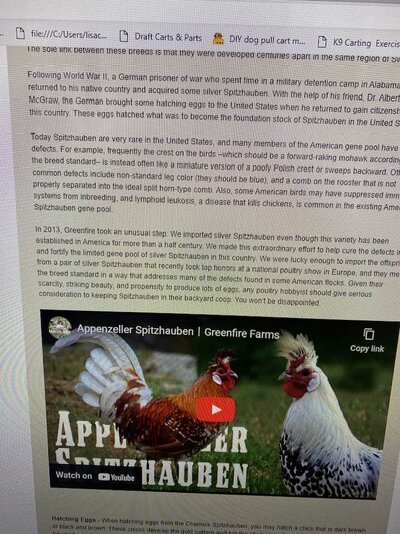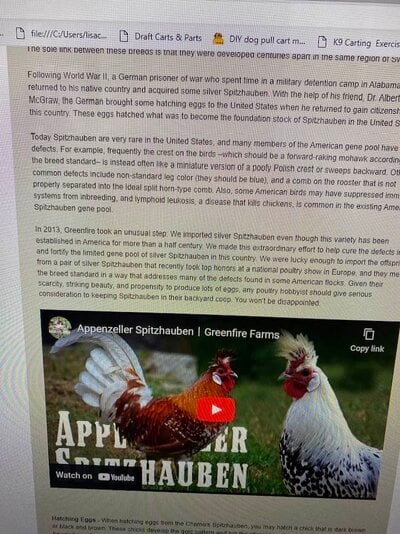Livingthehenlife
Chirping
- Apr 29, 2020
- 60
- 61
- 73
I read this with interest since I believe some Greenfire stock is weak and more susceptible to disease. They acknowledge this possibility themselves on their website. One obvious reason is that many of their breeds are sourced from extremely limited gene pools. Another is that many of their breeds are very recent imports brought from countries that may have different strains of disease than we do in the US. Birds that are genetically weaker and don't have exposure to common local pathogens are less likely to be resistant to them. Deathlayers are a good example. I've heard so many stories about how hard they are to raise to adulthood. Greenfire did the work and paid the money to bring these new breeds to the US. Getting them established here is a whole other challenge.
I'm not sure how your necropsy results support your suspicion that the illnesses came from GFF. Marek's is not passed vertically through eggs and even if the parent flock was infected, chicks would hatch clean. Marek's is easily transmitted through airborne particles. It can be on your property even if you don't have other chickens and can travel from neighboring properties up to 3 miles away. It can make its way inside house on shoes, hair and clothing. By the time they reach adulthood, most chickens have been exposed.
You and the other person who got chicks at the same time both had sick birds but your necropsy results were different. Lymphoid leukosis and Marek's are similar but still distinct. They make infected birds very susceptible to other illnesses like coccidiosis, infectious bronchitis, and mycoplasma all of which are also very common. You also had some birds from Greenfire that didn't get sick. This isn't too surprising. There are many studies about Marek's susceptibility and resistance between breeds and individual lines.
You're right when you suggest it would be a scandal for Greenfire to be shipping sick chicks all over the country, but these necropsies don't prove what you seem to think they do. I've read posts here and other places. I've come to my own conclusion that working with imported breeds is a huge risk and not necessarily worth the expense involved in the initial purchase price which is also very high.
I received my order 3 weeks ago from GFF and I did experience the loss of 4/14 birds but they also sent 4 extra, I ordered 10. They were incredibly responsive and offered helpful suggestions to preserve the rest of the flock. I did not request any sort of refund or free replacement #1 because these things happen and often it’s not on the breeder #2 they sent extras that covered losses.
You make an excellent point about establishing imported breeds and the risks associated. In my case, they suspected coccidiosis, I treated the flock accordingly and all remaining birds are in good health.
I’m more than happy with GFF and will happily continue to invest in more of their birds in the future. In fact I’ve already placed another order. I don’t think I’ll order live birds anywhere else...





